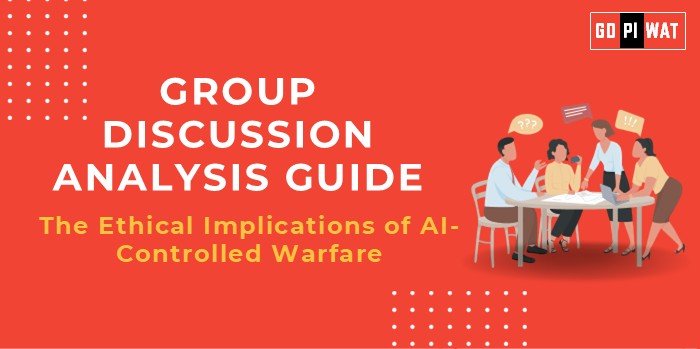📋 Essay Analysis Guide
🤖The Ethical Implications of AI-Controlled Warfare
🌐 Understanding the Topic
AI governance is integral to ensuring that technological advancements align with ethical principles. Effective regulation can help mitigate risks like bias and workforce displacement while fostering innovation.
⏳ Effective Planning and Writing
- Time Allocation:
- Planning: 5 minutes
- Writing: 20 minutes
- Review: 5 minutes
- Word Count Distribution:
- Introduction: 70 words
- Body: 375 words
- Conclusion: 55 words
🖊️ Introduction Techniques for Essays
- Contrast Approach: “While AI drives economic growth with $154 billion in global spending, its misuse highlights urgent ethical concerns.”
- Solution-Based Approach: “Frameworks like the U.S. NIST standard show that governments can regulate AI effectively without stifling innovation.”
📚 Structuring the Essay Body
- Achievements: Enhanced efficiency in banking and retail, AI frameworks like NIST.
- Challenges: Algorithmic bias, global workforce disruption, and lack of uniform policies.
- Future Outlook: International standards and ethical AI innovation.
📝 Concluding Effectively
- Balanced Conclusion: “Governments must prioritize AI ethics through proactive regulation, ensuring that innovation benefits society.”
- Global Comparison Conclusion: “International frameworks like the NIST serve as models for harmonizing AI ethics globally.”
🏆 Analyzing Successes and Shortcomings
- Key Achievements: Operational efficiency, robust regulatory initiatives.
- Ongoing Challenges: Bias in AI applications, workforce displacement.
- Global Context: The NIST framework as a model for responsible AI governance.
🔧 Recommendations for Sustainable Progress
- Expand ethical AI research funding.
- Promote public-private partnerships for inclusive AI innovation.
- Harmonize international regulatory efforts.
📄 Sample Short Essays
- Balanced Perspective: “AI presents immense opportunities and challenges. Governments must act decisively to establish ethical guidelines, balancing innovation with societal welfare.”
- Solution-Oriented: “Frameworks like the NIST demonstrate that regulation can foster responsible AI use without hindering progress.”
- Global Comparison: “The U.S. and EU models of AI governance highlight the importance of proactive regulation in addressing ethical concerns globally.”


